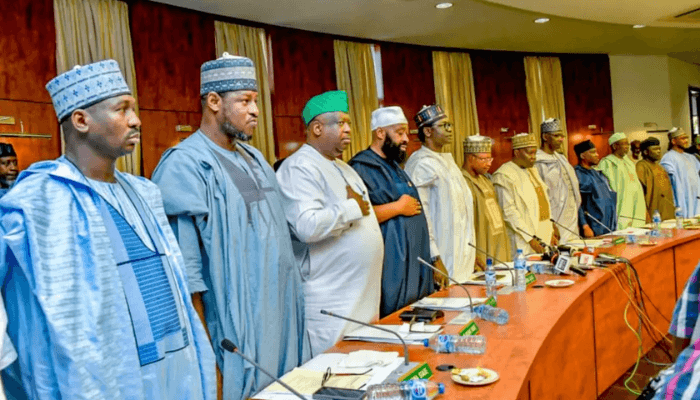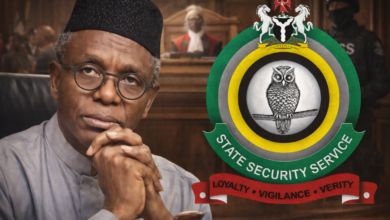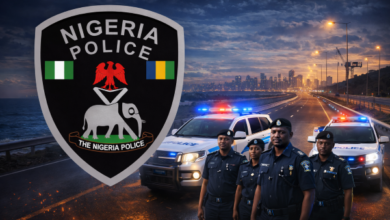Northern Governors fear the worst, demand State Police, Security overhaul

With bandits tightening their grip on vast swathes of rural communities, insurgents regrouping in the North-East, and mass displacement rising in agricultural belts, the political leadership of Northern Nigeria has drawn a red line.
The 19 Northern Governors, alongside key traditional rulers, have jointly demanded accelerated action to arrest the region’s deteriorating security architecture, warning that the continued erosion of law and order could trigger deeper economic, social, and political dislocations in the country.
Meeting under the umbrella of the Northern Governors’ Forum (NGF) in Kaduna on Saturday, the leaders issued a six-point communique that called for:
– Immediate regional coordination of intelligence,
– Legislative action to establish State Police, and
– Stronger grassroots surveillance systems across joint borders.
Decoding the Crisis: From Fragmented Responses to Regional Resolve
This unprecedented consensus by Northern political and traditional elites reflects a strategic shift in tone and urgency. For years, the North has presented a fractured response to escalating insecurity. However, the unrelenting waves of killings in Plateau, Bauchi, Benue, Borno, and Yobe appear to have jolted the leadership into action.
“These mindless acts of violence against innocent citizens remind us of the urgent need to redouble our security efforts,” the Forum stated, in a veiled admission that past strategies have failed to stem the tide of violence.
Significantly, the Forum acknowledged the resurgence of Boko Haram, the unchecked spread of banditry in the North-West, and the strategic breakdown of federal policing models as key threats to the region’s future.
Security by Strategy: Six Bold Proposals from the Forum
The communique distills the governors’ security vision into six priority actions:
- Endorsement of State Police
For the first time, the entire Northern bloc threw its weight behind State Police — a position long resisted due to fears over political misuse and ethnic fragmentation. The governors called on the National Assembly to expedite legislation to establish the legal framework for its implementation. - Joint Border Surveillance Platforms
Recognising the fluidity of armed movement across state lines, governors resolved to set up inter-state security platforms for real-time intelligence coordination — a practical first step toward a Northern regional security network. - Support for Federal Agencies — But Not Blindly
While reiterating support for President Tinubu’s administration, the Forum signaled a need for increased federal investment in security operations, with a focus on transparency, collaboration, and local input. - Strengthening Community Policing Initiatives
With rural communities increasingly acting as first responders, the governors plan to deepen local intelligence networks, empower vigilante structures, and expand existing neighbourhood watch models. - Empathy Meets Governance
The Forum offered condolences to the victims of the latest attacks — a symbolic, if long-overdue, gesture to rebuild public trust. Analysts believe this rhetorical shift is part of a larger plan to reclaim political legitimacy in restive zones. - Dialogue with the Nigerian Governors Forum (NGF)
The Northern bloc will also liaise with the NGF to jointly pressure federal agencies and harmonize national security priorities, especially in light of shared economic and infrastructural challenges.
BRANDECONOMY INSIGHT: A Turning Point for Nigeria’s Security Architecture?
From a security policy standpoint, the Kaduna meeting could mark the beginning of a regional pivot toward autonomy and accountability. The North, which once resisted decentralised policing, now faces existential threats that override political caution.
Insecurity has become the greatest risk to economic revival in the region, undermining food security, displacing skilled labour, and scaring off investors from key agricultural and industrial corridors.
Crucially, with the 2027 general elections on the horizon, Northern leaders may be seeking to redefine their legacy and relevance, especially as disillusionment grows among the region’s large youth population.
Next Steps
The Forum’s next meeting is scheduled for August 30, where further frameworks are expected to be unveiled — possibly including pilot programs for regional policing, community security funding mechanisms, and joint procurement of surveillance equipment.












